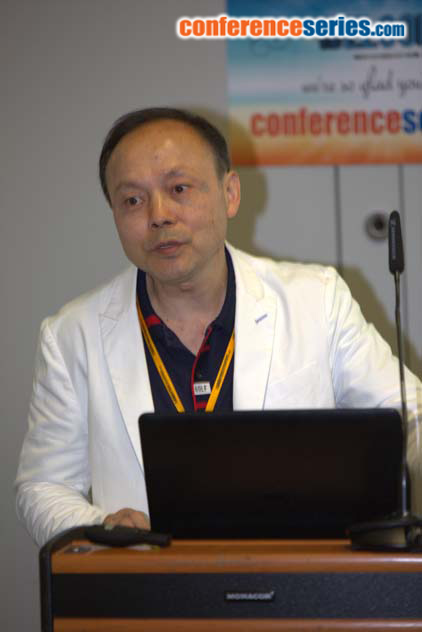
Bin Zhu
Hubei University, P R China
Title: Semiconductor-ionic materials for new generation fuel cells
Biography
Biography: Bin Zhu
Abstract
Currently two research fields are strongly correlated from semiconductor and ionic materials (SIMs), semiconductor physics and ionics, which have created "Three in one" electrolyte-free fuel cell technology (as illustrated in Figure 1) and science. Semiconductor electronic band can induce ionic conducting properties and band structure changes resulting in superionic conduction. Strongly crosslink approaches from electrons and ions based on extensive experimental discoveries and evidences have made a strong indication for a promising research frontier and new generation fuel cell as the semiconductor-ionic devices, e.g. electrolyte (layer)-free fuel cell (EFFC) and single layer fuel cells (SLFCs). This is because the semiconductor-ionic materials can integrate fuel cell all anode, electrolyte and cathode functions into one component/layer thus to realize the fuel cell. We are working on both theoretical approaches and experiments to develop and establish a new discipline on Semiconductor-Ionics (Semionics) for energy applications. Using existing semiconductor physics and theories, materials, we extend into the ionic properties and energy band modifications by ion effect, e.g. correlation with ions, and electron-ionic correlated transport properties thus facilitating fuel conversions with higher efficiencies.
Recent Publications (minimum 5)
1. An editor news from Fuel cells: Three in one, Nat. Nanotechnol. 6, 330 doi:10.1038/nnano.2011.89.
2. B. Zhu et al, Novel fuel cell Nano Energy 19 (2016) 156.
3. Zhu et al, Schottky junction effect on high performance fuel cells based on nanocomposite materials, Adv. Energy Mater. (2015) 1401895.
4. B. Zhu, et al, A new energy conversion technology based on nano-redox and nano-device processes. Nano Energy, 2 (2013) 1179.
5. Zhu, B. Raza, R., Abbas G. and Singh, M. An Electrolyte-Free Fuel Cell Constructed from One Homogenous Layer with Mixed Conductivity. Adv. Funct. Mater. 21 (2011) 2465.
6. B. Zhu, R. Raza, H. Qin, Q. Liu and L. Fan. Fuel cells based on electrolyte and non-electrolyte separators. Energy Environ. Sci. 4 (2011) 2986


